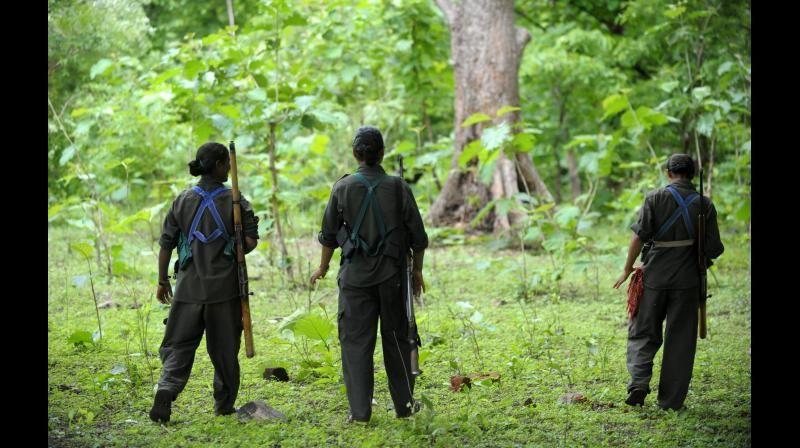
Raipur: More than two decades after deserting their village due to Maoists, around 25 tribal families are planning to return to their native place in Chhattisgarh’s Narayanpur district. Nearly 100 members of these families had left their homes in Gaarpa village located in Abujhmad after Naxalite started targeting them in 2003. They were then settled on the outskirts of Narayanpur town on a tract of government land, where they took up agriculture for livelihood.
Now, 21 years after their desertion, these families recently visited their native place and have been planning to resettle there after police set up a camp there to facilitate development works and ensure security for local population. Abujhmad, bordering Maharashtra’s Gadchiroli district, was considered a Maoist fortress until recently. On October 4, security forces scripted their most successful anti-insurgency operation in Chhattisgarh by gunning down 31 Naxalites during an encounter in the area. “Leaving the ancestral land was never easy. We had no option but to flee for the sake of our lives.” 60-year-old Sukkuram Nureti told PTI. Nureti’s family was among the 25 families that left Gaarpa in April 2003. Nureti hails from the Abujhmaria community, a particularly vulnerable tribal group.
“Of the 80 families in the village, around 25 were followers of ‘Gayatri Pariwar’ and Naxalites objected to it. They threatened us with dire consequences if we did not quit following ‘Gayatri Pariwar’. So we decided to leave the village,” he said. Nureti said they always wanted to return. “Now it seems our dream will come true as a police camp has been set up and things have started improving there,” said Nureti, who has served as a member of Janpad panchayat in the past. Nureti and others who had left the village visited Gaarpa last week and opened a Lord Shiv temple that had remained shut since 2003. “We are planning to resettle in the village as we have our farmland and homes there,” he said.
Making significant inroads into Abujhmad, the Chhattisgarh police have set up security camps in Gaarpa, Kasturmeta, Mastur, Irakbhatti, Mohanti and Horadi villages in the past eight months. The Gaarpa camp came up on October 22. According to police, the strategy of establishing these camps has pushed the Naxalites to a very limited area in the zone and facilitated development works in the region. Security camps in remote and Naxal-hit areas will help thousands of villagers avail the benefits of development works and welfare measures through Niyad Nellanar schemes, Narayanpur Superintendent of Police Prabhat Kumar said. Under Niyad Nellanar, the state government has been undertaking development works in interior villages within a 5-km radius of security camps. Tribals evicted by Naxals in villages around the newly set up camps have started returning to their homes, the SP said.
“Villagers who were earlier pressured by Naxals to oppose development projects are now demanding roads, mobile towers, health and schools. Positive results will be seen in the coming days due to the efforts of police and administration,” he said. With a combined security and development push, nearly half of Abujhmad now has road accessibility. There is a target of providing road connectivity through Mad to Chhotebethia (Narayanpur) and Maharashtra, he said. “We will connect Narayanpur to Gadchiroli (Maharashtra) and Chhotebethia within the next 18 months,” the official said. After the establishment of six security camps, Principal Secretary of Chhattisgarh’s Panchayat and Rural Development Department Niharika Barika recently visited five villages of Abhujmad, marking the first such trip by a top bureaucrat to the region. She travelled over 60 km on a motorcycle and reviewed more than 30 development projects, an official here said. Barika visited three Anganwadis, two schools, one health sub-centre and met grassroots development workers and flagged off bus service between Gaarpa and Narayanpur, he said. Spread over about 4,000 sq km, Abujhmad had been a den of the outlawed Communist Party of India (Maoist) as its dense forest served as a hideout for its leaders. The rebels’ activities in Abujhmad have declined in recent years due to the increased presence of security forces and development works being carried out in the region, officials said.
( Source : PTI )
![]()






